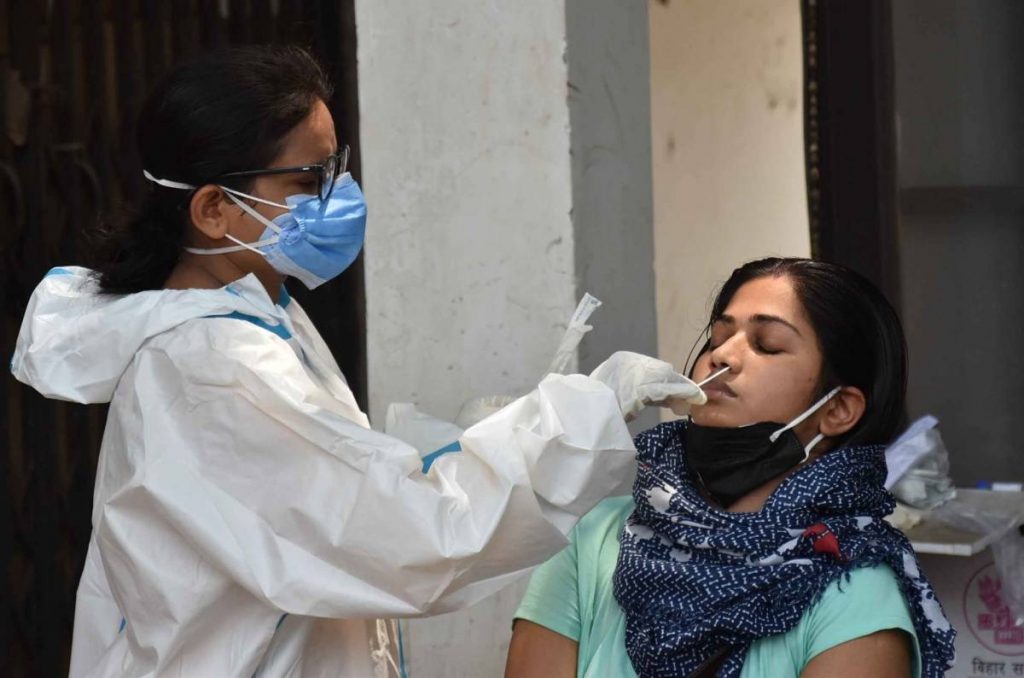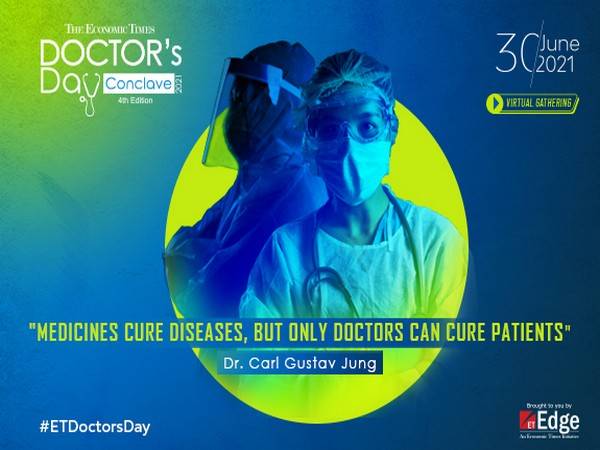Health workers today have been under immense pressure to lead the battle against an invisible enemy. They have left their families, their personal lives, and even sacrificed their health…reports Asian Lite News
Being a doctor in today’s day and age is an act of unabated selflessness. The Hippocratic oath has become a charter of destiny and a beckoning like no other: Doctors today are required to risk their very lives to save lives each day.
Health workers today have been under immense pressure to lead the battle against an invisible enemy. They have left their families, their personal lives, and even sacrificed their health to address every challenge during the pandemic, round the clock. The moments that they have faced in this arduous uphill battle have been harrowing and often thankless.
Here, The Economic Times – Doctors Day Conclave, a hallmark flagship IP of ET-Edge, has been at the forefront of commemorating and eulogising frontline healthcare warriors. ET Edge has facilitated this renowned conference in collaboration with Medwiz Healthcare Communications. The one-day event had many insights that felicitated the remarkable journey of healthcare warriors in a period of unprecedented crisis.

Speaking at the Doctor’s Day Conclave, Dr Shriram Nene, Cardiovascular and Thoracic surgeon, a healthcare innovator, a Bollywood film producer, health and wellness social media influencer, sheds light on how telemedicine has played an important role. He states that in India, the government as a whole, both federal and state, worked together to quickly put into effect a strong response. Doctors, nurses and healthcare workers became the real heroes. The way that the medical staff responded to the pandemic was amazing. Before the pandemic, the issue was the adoption of telemedicine. The pandemic has made it possible for people to recognise the power of telemedicine.
ALSO READ: A tribal ‘doctor’s’ effort to boost immunity
While technology has made the lives of healthcare workers easier to a degree, citizens too have a role to play. Shilpa Shetty, Actor, Entrepreneur, Mindful Yogi, Wellness Influencer, highlights that we should collectively make sure that we are easier on the frontline workers and don’t make it more difficult for them. Starting from the very basics: By working on strengthening their immunity, nutrition, sleep, and wearing a mask are some crucial factors. Ultimately, we control our health and consequently our breath. We must never let fear get the better of us and always remain positive.
Such an approach has enabled the masses to proactively address healthcare challenges. Dr Randeep Guleria, Director, AIIMS, asserts that the pandemic has put health on the centre stage. It has made people realize how important health is even if you consider the economy, industry, or travel and tourism. Health plays a crucial role because everything is interlinked with a person being healthy and the pandemic showed that if you have a large number of people who are not healthy, it creates a problem not only for the individuals concerned but also society at large.

Balram Bhargava, Director General, Indian Council of Medical Research, New Delhi and Secretary, Department of Health Research, Ministry of Health and Family Welfare, Government of India (ICMR), offers insights on India’s healthcare infrastructure. He states that while India does have a robust pharma industry and it is a vaccine superpower as well. However, the country’s healthcare system does need some maintenance and reforms, particularly in terms of investment as only 1 percent of the GDP is spent on healthcare.
Sonu Sood, Indian actor, film producer, model, humanitarian, and philanthropist, observes that the trust, faith, and responsibility that every individual has keeps one motivated and becomes an inspiration to work harder in such times. As citizens, we should take responsibility and also shoulder the responsibility of the frontline workers as well as the people around us by working together.
Dr Naresh Trehan, Chairman & Managing Director, Medanta Heart Institute asserts that the pandemic has taught us that planning and the ability to move around those plans can always be disrupted. It’s a wake-up call as for many years we have known what our weak points are. While COVID has been devastating, if we look at things holistically, it has given us the ability to re-orient ourselves.

In many ways, the pandemic has taught us to not take anything for granted. Dr Devi Prasad Shetty, Chairman & Executive Director, Narayana Health states that when COVID started we thought that this is a problem that will last for a year or two years and one day there will be a declaration that COVID is gone and we will live happily ever after! The sad truth is that COVID is not going to go away for quite some time and remain for a few more years at least. We have to plan our lives with COVID to ensure a peaceful co-existence. The intensity, severity and lethality of COVID is expected to reduce as time passes by.
As a whole, healthcare, the economy, and industry is moving in a whole new direction. It’s time to re-imagine and re-think outcomes from a sustainable and panoramic long-term perspective. It has taught us to have a renewed respect for the entire ecosystems that enable our very lives. It marks a new epoch for mankind with healthcare workers leading the way to a new normal and paradigms of existence.
This story is provided by Mediawire. ANI will not be responsible in any way for the content of this article. (ANI/Mediawire)
ALSO READ: ‘Penalty for doctors on failing to certify Covid deaths’

Leave a Reply